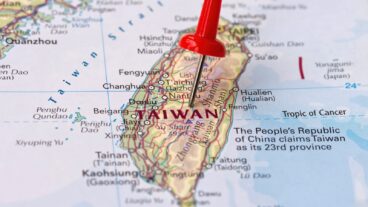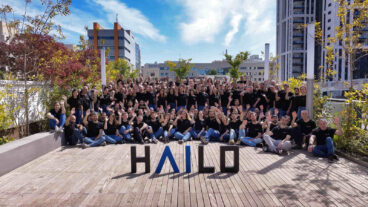Saul Singer, co-author of the top-selling Start-Up Nation along with Dan Senor, has just returned from China, having been invited to the World Economic Forum’s fourth summer DAVOS in Tianjin, near Beijing.

While there, Singer gave numerous interviews and participated in events to launch the Chinese edition of Start-Up Nation, the book that explains Israel’s extraordinary high-tech successes.
Start-Up Nation examines Israel’s trillion dollar high-tech industry and the nation’s improbable success, exploring how a small country of only 7.1 million people, in a constant state of war and with no natural resources, has carved out a lucrative niche for itself in high-tech on a par in scale and calibre with the top companies in the US.
In November, the authors told ISRAEL 21c that their book is not only an exposé of historical and business facts, but portrays Israel as a model for individuals and nations seeking to build their own enterprises and boost their economic confidence.
Their contention has been borne out in sales. The book is now required reading at a Korean high-tech company, suggested reading for members of the Korean government and doing well in Taiwan.
It reached the bestseller lists in the US, India, Singapore, and Israel (in English) and additional foreign language editions are on the way in Israel, UAE (Arabic), Brazil (Portuguese) and Russia.
Still suffering jet lag from the return trip, Singer remarks that on his first visit he found China “amazing” and described it “like another planet, culturally and in terms of scale and the pace of its development.” He says there was considerable press interest in the book in China.
“The Chinese have a special relationship to the Jewish People,” he relates, “they see Jews and Chinese as ancient sister civilizations, at the core of their respective worlds in the West and the East.
“The Chinese are very admiring of success and a number of books have been published in China about Jews and success in business and there are high expectations of our book.”
Singer believes that there is great potential for collaboration between Israeli and Chinese companies, citing the American-Israeli example: “They could have joint R&D, and Israeli companies could help to make the Chinese companies more innovative,” he says.
He notes that the possibility of cooperation hasn’t been obvious until now, because the Chinese are so busy supplying their vast local markets that they haven’t looked beyond their borders for innovation; also, traditionally, they have seen outside markets as only a target for export, but that this “could and should change.”
Singer points out a similarity between the two countries: “Israel is inside a lot of Microsoft, Intel and IBM products, but people don’t necessarily know that. The Chinese manufacture brand names for the whole world. They say they want to change their image from ‘Made in China’ to ‘Made by China.’ “
Two noteworthy appearances by Singer in China were at the Israel pavilion at the Shanghai Expo and at Peking University (the “Oxford of China”). “I was warned not to have a Q&A session because Chinese students are notoriously shy, but I found them to be full of questions. There is tremendous interest in Israel and what makes it so innovative.”











